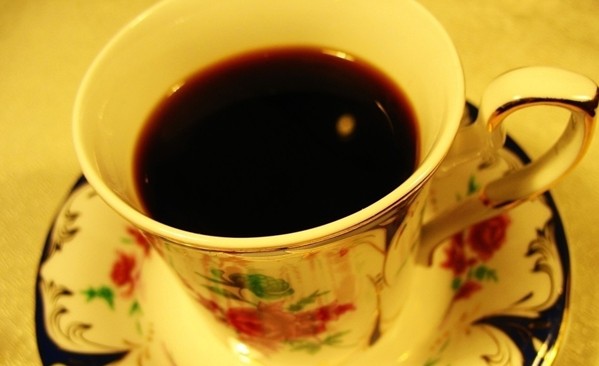Introduction to the treatment method of planting and Development History of Bean Flavor description varieties in South Minas, Brazil

For professional baristas, please follow the coffee workshop (Wechat official account cafe_style)
Coffee was first introduced to Brazil in the early 18th century. In 1727, the Brazilian government sent a personable army officer to secretly bring coffee seeds from French Gaiana to Brazil on the pretext of mediating border disputes. It is said that the governor's wife of French Gayana was so fascinated by the officer that she secretly brought coffee tree seeds to him at a farewell dinner party. At present, 2 million hectares of land in Brazil is used to grow coffee, the largest is Arabica, and the beans will eventually be sent to large bakers in various countries, also known as Santos (in the name of the export port of Santos, not the producing area). Brazil has also proved to be able to produce gourmet coffee and small quantities of coffee, and the local boutique coffee can not only be provided by small-scale coffee farmers. The main coffee producing areas in Brazil are Sul de Minas South Minas, Matas de Minas Minas South East Mountain Forest, Cerrado Hirado, the north-central mausoleum of Chapadas de Minas Minas, Mogiana, Paran á Parana and Bahia Bachia. There are both traditional varieties and variants, such as Bourbon, Mondo Novo Mondonovo, Icat ú Ikatu, Kaduai, Iapar, cultivated card Taiyi.
Brazil is the largest coffee producer in the world, accounting for about 30% of coffee production, but because Brazil is located in tropical rain forest areas with relatively flat terrain and few high-altitude mountain forests, most coffee is grown in low-altitude non-volcanic soil areas. And there is not much shade for shading, resulting in the disadvantage that Brazilian beans grow quickly, but the density and soft flavor of coffee does not change much. Coupled with large-scale machine harvesting of coffee beans with a wide range of maturity differences in coffee harvesting at the same time, so that the quality of Brazilian beans is not particularly outstanding has always stayed in the category of commercial beans.
After 2000, due to the inducement of coffee competition, the quality of coffee beans produced in the high-altitude areas of the south was appreciated, mainly by the farms around the Minas platform, and the coffee quality was also the largest among Brazilian beans, such as Sirado in the west of Minas and Matas in the east, Bashiya in the north or small farms in the south, Minas almost became synonymous with Brazilian boutique coffee. In recent years, the coffee competition is so accurate that it is separated by treatment (water treatment, half water washing, half sun drying), which has developed a variety of flavors and taste, which is completely different from that of traditional Brazilian coffee. In particular, half-sun and solarization performed best, with an increase in the aroma of clean, low-acidity fruit, reducing the rich chocolate flavor in the city of Kasuela, South Minas Gerais. Saquarema this is an ancient farm with a history of more than 200 years. The farm picks coffee without machine, but fully ripe coffee beans are picked by hand. The dry aroma has citrus and fruit tea aromas, the wet aroma has black tea aromas, the taste shows elegant aromas of jasmine and herbal tea, and the finish has a mellow oolong tea flavor. It tastes very fresh and gentle, which is an amazing work rarely seen in Brazilian beans.
Property Characteristics: farm characteristics
Farmer Farm owner: Fazenda Saquarema
City City: Minas Gerais State Minas Gias
Country countries: Brazil
Altitude altitude: 1250 m
Farm Size farm area: 110000 coffee workers
Coffee Characteristics: coffee characteristics
Variety varieties: Catua í, Catuca í, Yellow Bourbon Kaduai Yellow bourbon
Processing System treatment: Pulped Natural solarization
Appearance appearance: 16-18 Screen (16 Murray 18 eyes)
Top Jury Descriptions comment: the baking degree (Cinnamon) measured by the cup at the beginning of 60 seconds of explosion.
Aroma aroma / flavor flavor: peanut, malt, mint, black tea, vervain, sugar cane, caramel, chocolate, cocoa, oil ester
Sour quality: citrus, blueberry, oxalic acid, red apple
The complexity of complex is similar to that of other: clear and clean aroma of black tea, gentle taste, high temperature aroma of oolong tea, and rare elegance of Yu Yun Baxi beans.
Overall style attribute: clear tea fragrance. It's rarely clean. Amazing and infinite
Cup test score and overall review of direct coffee
Cup test date: 2014.03.29
Dry aroma: 9
Wet aroma: 8
Clean: 9
Sweetness: 9
Acid quality: 8
Palate: 9
Flavor: 8
Yu Yun: 8
Balance: 9
Overall: 9
Cup test score: 86
Since 1999, South Minas is the most successful manor in Brazil's "extraordinary cup" national treasure bean bidding activity, which is the backbone of Brazilian boutique coffee. As for the north-central mausoleum of Minas (Chapada de Minas) is not a boutique producing area, mostly for general commercial beans. To sum up, South Minas, the central and western Mesa of Minas (i.e. Serrado) and the higher forest areas in the southeast can all be called boutique producing areas of Minas province.
Saint Theo / Shenmu Manor
San Teo / Shenmu Manor is located in the southern mountains of Minas Gerais, with an altitude of about 1200 meters, an average annual temperature of 19 °C (66 °F) and an average annual rainfall of 1600 mm. Excellent geographical location and high-quality climate environment create a unique soil, high-level boutique coffee is also born here.
The farm itself has a 300-hectare tropical rainforest reserve, of which the most striking symbol of St. Theo / Shenmu Manor is the 40-meter-long sacred tree Cariniana legalis, which, according to the owner's rough estimate, has grown here for more than 1500 years.
The owner of Saint Theo / Kamiki Manor is Jos é Renato Gon ç alves Dias, who, according to the owner, has been producing crops since 1948 to this day; the farm itself is produced using only organic fertilizers to provide plant nutrients to keep the land alive. The estate, which has about 160 lifelong employees, provides a good and sustainable living environment, includes sound health and medical plans, trains workers in their professional development, and has a school to provide a good school environment for their children. The coffee of Santeo / Shenmu Manor is completely different from that of a large Brazilian manor. instead of using machines instead of manpower, the coffee berries are processed by hand. The harvesting workers in the park only collect fully ripe coffee cherries and send them to a pulper for pulp removal or directly laid out in the courtyard for sun exposure. After the completion of the post-processing method, the raw coffee beans are packed in gunny bags, and the average moisture content is reduced to 11%. After being transferred to the wooden warehouse for 30 days, the coffee beans can be exported. Finally, each batch of coffee will be carefully screened by density and electronic color sorter before the whole production process can be completed. In addition, Shengtai'o / Shenmu Manor has also passed the ISO certification 9001 Quality Management System 2002, which means that Zhuangyuan itself can precisely control the production quality and output of raw coffee beans. "A production batch has its own files and complete historical records, providing the owner to trace the production process to control the quality. In addition, Zhuangyuan itself has also passed the certification of UTZ sustainable management Certified systems, and joined the BSCA Brazilian Fine Coffee Association (Brazil Specialty Coffee Association).
Among the two estates owned by Jos é Reinado Goncalves Diaz, in addition to this excellent San Theo / Kamiki estate, there is another very well-known sister estate, namely, the world-renowned Brazilian COE Champion Manor Queen Manor. Over the years, the two estates have won numerous awards in the COE Excellence Cup and become popular all over the world.
Paciyou Manor is located in the golden area of South Minas (Sul de Minas) where boutique coffee is grown. The manor is located in the mountain area with an elevation of 1100 to 1200 meters above sea level, with a humid climate and fertile soil. The Vieira Ferreira family has grown boutique coffee for three generations. They have the industry's leading boutique coffee expertise and excellent product reputation!
In order to ensure the quality of coffee, the manor employs a large number of human resources, from soil cultivation to the collection of coffee cherries, the implementation of pure manual planting process. As a reward for employees' hard work, the manor provides employees with a high-quality living environment, including children's educational resources, professional training and environmental conservation.
Under the Brazilian Environmental Protection Act, manors also attach equal importance to the issue of environmental sustainability. The manor's native forest is set up as a nature reserve for tourists, school groups and ecologists to visit. The manor also continues to plant saplings near the water source to ensure sustainable ecology.
When the coffee is harvested at the manor, in order to avoid gathering immature green beans, it will only be harvested when the coffee cherries are ripe. All coffee cherries are collected by hand and dried in the manor's courtyard in the natural sun. Next, the coffee beans will be placed in a sheepskin wood drying oven for at least 60 days before they are processed and shipped separately.
Many different varieties of coffee are grown on the estate, such as MundoNovo and Catua í.
Acaia, Icat ú and Bourbon. This coffee is 100% yellow bourbon coffee (Yellow Bourbon). The harvest period and ripening period of this variety of coffee are different from other varieties, so it also has certain characteristics and differences.
Alvareda Farm in South Minas, Brazil
The story of the farm owner Gerardo de Sima (Geraldo Docema)
Gerardo de Sima heard a long time ago about his great-grandmother who first came to Brazil and how his grandfather grew up and made a living here. His grandfather bought Fazenda Bela Vista more than 30 years ago and found the land in Jacutinga, in the province of Minas Gerais, perfect for coffee. Gerardo's coffee life unfolds here.
Born on a farm, he inherited his mother's passion for farms and land. Over time, Alvareda Alvorada and Spring Primavera were added to their assets, making Gerardo's dream of expanding his farm come true.
Since 2011, he began to participate in NUCOFFEE activities, which helped him realize his dream. The producer, who has been inseparable from coffee since the age of eight, holds the highest expectations for the event. "in order for the farm to continue to operate, we want to grow in the boutique coffee market, because it is more difficult for those who are unable to produce high-quality coffee today," he said.
In order to make full use of any area where fine coffee can be produced, they have invested a lot of money in machinery and equipment. Gerardo said: "my area has a unique growth environment for coffee, and we should make good use of this advantage."
Geraldo never complains about hard work. He knew that everything he had came from this land. The desire for success and the desire to watch his children grow up in this land belonging to his family drove him to strive for excellence.
About the farm.
Social responsibility
Alvareda, Fairview and Spring Farmers are uniquely located in the city of Yakutinga in the land of Minas province, which is most suitable for the production of boutique coffee. Countless trophies are the best witness to the quality of this coffee producing area.
Production
Total area: 10 ha (24.7 acres)
Coffee area: 2 ha (4.94 acres)
Treatment: mainly in the sun.
Drying methods: scaffolding solarization and machine drying (mechanical dryer)
Environment
Fauna: Canaries, maned wolves, beaked birds, monkeys, parrots, snakes, herons, crested pheasants
Flora: Palm heart, giant palm tree, Moreira, beauty tree
Altitude: 900m to 1100 m (2953 to 3609 ft)
Climate: continuous rainfall in summer, with an average temperature of 20 to 22 degrees Celsius (68-71 degrees Fahrenheit)
Awards and Certification
2011-third place in Pulped Natural Category by Coopinhal
2010-third place in Natural Coffee by Coopinhal
2011 / 2011 / 2011 / 2007-Jacutinga/Emater/Natural 2nd place
2008 / 09-third place in Jacutinga/Emater/Natural
Important Notice :
前街咖啡 FrontStreet Coffee has moved to new addredd:
FrontStreet Coffee Address: 315,Donghua East Road,GuangZhou
Tel:020 38364473
- Prev

El Pacamara Single Bean Flavor Description Variety Cultivation History Introduction to Production Area Treatment
Weixin Official Accounts cafe_style Country: El Salvador Estate Name: Las Brumas Producer: Ernesto Menendez Town: Sonsonate Production Area: Apaneca-Ilamatepec Label: Orsir Direct Trade, Harvest Season: April 2013 Treatment Method: Traditional Wash Variety: Pacamara and Bo
- Next

Introduction to the method of producing area for describing the Flavor and Development History of Costa Rican Faramie Bean varieties
Farami is located in the Tarrazu producing area of Costa Rica (Costa Rica), on slopes 1600-1700 meters south of the Taramanca Mountains, with a pleasant climate and fertile volcanic soil, jointly run by Juan Luis Fallas Mata and his wife Maria Eugenia Ramirez. Adhere to the natural agricultural law, 100% ensemble
Related
- Detailed explanation of Jadeite planting Land in Panamanian Jadeite Manor introduction to the grading system of Jadeite competitive bidding, Red bid, Green bid and Rose Summer
- Story of Coffee planting in Brenka region of Costa Rica Stonehenge Manor anaerobic heavy honey treatment of flavor mouth
- What's on the barrel of Blue Mountain Coffee beans?
- Can American coffee also pull flowers? How to use hot American style to pull out a good-looking pattern?
- Can you make a cold extract with coffee beans? What is the right proportion for cold-extracted coffee formula?
- Indonesian PWN Gold Mandrine Coffee Origin Features Flavor How to Chong? Mandolin coffee is American.
- A brief introduction to the flavor characteristics of Brazilian yellow bourbon coffee beans
- What is the effect of different water quality on the flavor of cold-extracted coffee? What kind of water is best for brewing coffee?
- Why do you think of Rose Summer whenever you mention Panamanian coffee?
- Introduction to the characteristics of authentic blue mountain coffee bean producing areas? What is the CIB Coffee Authority in Jamaica?

